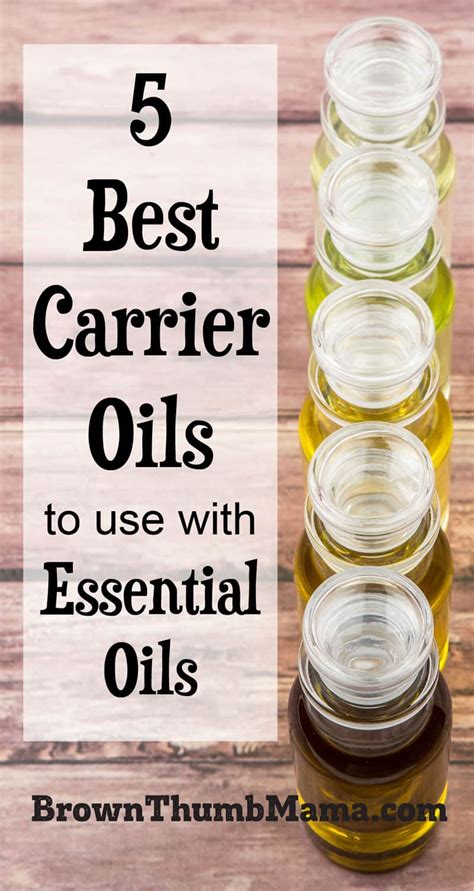Carrier oils are plant-based oils that are used to dilute essential oils before they are applied to the skin. They are also used as a base for massage oils and other skincare products. Carrier oils are typically odorless and colorless, and they have a long shelf life.

Types of Carrier Oils
There are many different types of carrier oils available, each with its own unique properties. Some of the most popular carrier oils include:
- Jojoba oil: Jojoba oil is a light, non-greasy oil that is similar to the sebum produced by the skin. It is a good choice for all skin types, and it is especially beneficial for dry or sensitive skin.
- Coconut oil: Coconut oil is a solid oil that melts at room temperature. It is a good choice for dry or damaged skin, and it can also be used as a hair conditioner.
- Olive oil: Olive oil is a light, flavorful oil that is a good choice for all skin types. It is rich in antioxidants, and it can help to protect the skin from damage.
- Sweet almond oil: Sweet almond oil is a light, nutty-scented oil that is a good choice for all skin types. It is rich in vitamins and minerals, and it can help to soothe and soften the skin.
- Grapes seed oil: Grapes seed oil is a light, non-greasy oil that is quickly absorbed by the skin. It is a good choice for all skin types, and it is especially beneficial for acne-prone skin.
Benefits of Carrier Oils
Carrier oils offer a number of benefits, including:
- They can help to dilute essential oils and make them more gentle on the skin.
- They can help to improve the absorption of essential oils into the skin.
- They can help to moisturize and soften the skin.
- They can help to protect the skin from damage.
How to Use Carrier Oils
Carrier oils can be used in a variety of ways, including:
- Diluting essential oils: To dilute essential oils, add a few drops of essential oil to a carrier oil. The ratio of essential oil to carrier oil will vary depending on the essential oil and the desired effect.
- Making massage oils: To make a massage oil, add a few drops of essential oil to a carrier oil. The ratio of essential oil to carrier oil will vary depending on the desired effect.
- Making skincare products: Carrier oils can be used as a base for a variety of skincare products, such as lotions, creams, and balms.
Common Mistakes to Avoid
When using carrier oils, it is important to avoid the following common mistakes:
- Using too much essential oil: Using too much essential oil can irritate the skin. It is important to follow the dilution guidelines for each essential oil.
- Using a carrier oil that is not right for your skin type: Some carrier oils are more suitable for certain skin types than others. For example, jojoba oil is a good choice for all skin types, while coconut oil is a good choice for dry or damaged skin.
- Not storing carrier oils properly: Carrier oils should be stored in a cool, dark place. They should also be kept in a sealed container to prevent them from oxidizing.
FAQs
Here are some frequently asked questions about carrier oils:
Q: What is the best carrier oil for my skin type?
A: The best carrier oil for your skin type will depend on your individual needs. However, some general guidelines include:
- Jojoba oil is a good choice for all skin types, especially dry or sensitive skin.
- Coconut oil is a good choice for dry or damaged skin.
- Olive oil is a good choice for all skin types.
- Sweet almond oil is a good choice for all skin types, especially sensitive skin.
Q: How do I dilute essential oils with carrier oils?
A: To dilute essential oils with carrier oils, add a few drops of essential oil to a carrier oil. The ratio of essential oil to carrier oil will vary depending on the essential oil and the desired effect. For example, if you are using lavender oil for relaxation, you might use 5 drops of lavender oil to 1 ounce of carrier oil.
Q: Can I use carrier oils on my face?
A: Yes, you can use carrier oils on your face. However, it is important to choose a carrier oil that is right for your skin type. For example, jojoba oil is a good choice for all skin types, while coconut oil is a good choice for dry or damaged skin.
Q: How long do carrier oils last?
A: Carrier oils typically have a shelf life of 6-12 months. However, it is important to store them in a cool, dark place to prevent them from oxidizing.
